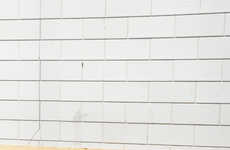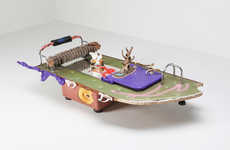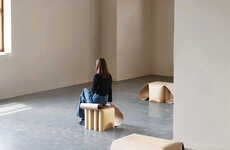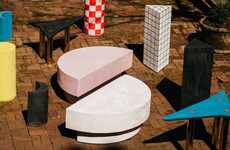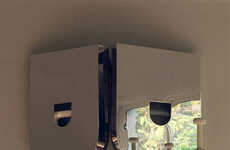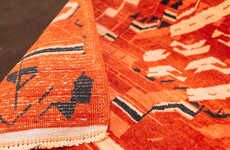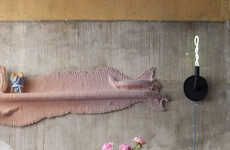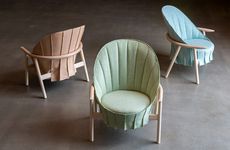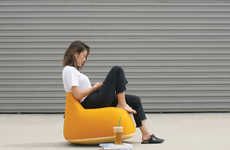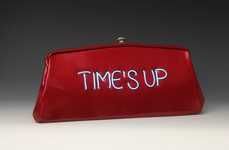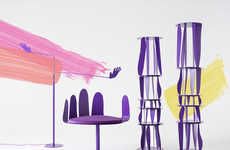
Katrin Greiling Developed Furniture from Kinnsand Rugs
Kalin Ned — May 28, 2018 — Art & Design
References: studiogreiling & dezeen
Designer Katrin Greiling utilized rugs and textiles from Swedish brand Kinnsand for the creation of a line of experimental furniture that builds on functional duality. The collection is named 'Structures,' and it puts practicality and aesthetic to the test. Katrin Greiling drew inspiration from Middle Eastern traditions. She was determined to create "something that could be considered furniture to either sit or lay on." As a result, the interior designer creates two types of frameworks and arranges rugs and textiles from Kinnsand on top of them.
The result is a line of experimental furniture that pushes the boundaries of form and understanding, offering up pieces that are ambiguous in their usage. 'Structures,' on display in Kinnsand's showroom, boasts a total of 11 objects and four different types of experimental furniture — ottomans, daybeds, benches and tables.
The result is a line of experimental furniture that pushes the boundaries of form and understanding, offering up pieces that are ambiguous in their usage. 'Structures,' on display in Kinnsand's showroom, boasts a total of 11 objects and four different types of experimental furniture — ottomans, daybeds, benches and tables.
Trend Themes
1. Functional Duality - The trend of functional duality in furniture design presents opportunities for creating innovative pieces that serve multiple purposes.
2. Ambiguous Usage - The trend of creating furniture with ambiguous usage allows for disruptive innovation by challenging traditional notions of form and function.
3. Experimental Design - The trend of experimental furniture design opens doors for creating unique and unconventional pieces that push the boundaries of aesthetics and practicality.
Industry Implications
1. Interior Design - The interior design industry can capitalize on the trend of functional duality by creating furniture that serves multiple purposes, enhancing the versatility and efficiency of living spaces.
2. Textile Manufacturing - The textile manufacturing industry can seize disruptive innovation opportunities by collaborating with furniture designers to create fabrics and rugs that are specifically designed for ambiguous usage in experimental furniture.
3. Furniture Retail - The furniture retail industry can benefit from the trend of experimental design by offering unique and unconventional pieces that cater to consumers looking for statement furniture with artistic and functional value.
3
Score
Popularity
Activity
Freshness

